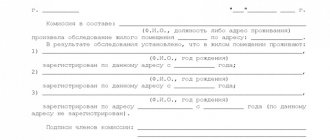Deadlines for acceptance and missed period
According to the law, the period is limited to 6 months from the date of opening of the inheritance case, that is, from the date of death of the testator, in no case after notification of each of the heirs. The specified period remains the same for all successors, regardless of when they were informed of the death.
If during this time you do not have time to fill out an application for inheritance, you will miss time and you will be denied the right to inherit. It will be necessary to prove in court the reason for missing the deadline.
As valid reasons, the court may take into account:
- severe form of the disease, in particular disability;
- obstructive actions on the part of trustees or guardians;
- the language barrier;
- moving abroad during the life of the testator;
- long business trips;
- inability to leave a seriously ill relative unattended;
- concealment of the fact of the death of the testator.
It is worth noting that for the following unjustified reasons, a 100% refusal will follow:
- ignorance of the laws of the Russian Federation;
- ignorance of death due to a long quarrel;
- being on sick leave.
An additional 3 months are provided if the primary heirs do not make themselves known within six months.
LAWYER FOR CIVIL CASES call now: ☎ 8 (495) 532-75-40
Why do you need a court decision?
The official scheme for accepting an inheritance involves the applicant applying to a notary. Late submission of documents excludes the possibility of entering into rights without a court decision. An exception is the acceptance of inheritance after the fact. However, this method of inheritance only postpones the moment of visiting the notary’s office, but does not exclude it.
The beneficiary will need to visit a notary and provide conclusive evidence of actual ownership. There are no deadlines for submitting papers. But it is better to act within the statute of limitations. If you have 2nd or 3rd line relatives, it is advisable to go to court within the time limit for registering an inheritance.
Expert opinion
Stanislav Evseev
Lawyer. Experience 12 years. Specialization: civil, family, inheritance law.
If the applicant turned to a notary, but was unable to provide evidence of acceptance of the property within 6 months , then he will be refused to issue a certificate. The refusal must contain a regulatory justification and be exclusively in writing. After receiving the document, the applicant will have to go to court to secure his rights to the inherited property.
Without a court decision, it will not be possible to register ownership. In essence, a procedural document replaces a notarial certificate.
Legal procedure for registration
Following the opening of the inheritance, it is necessary to seek assistance from a notary with an application for acceptance of the inheritance in order to assign a certificate of ownership. If the inheritance case has not been opened, then the legal adviser will open it at the request of the heir. The legislation does not set a time frame for obtaining a certificate of title, in contrast to the application for inheritance, which is limited to six months.
The procedure is similar to the standard acceptance of an inheritance, with the exception of the list of requested documents.
- documents from the Housing Office, ERC confirming cohabitation with the testator;
- certificates from municipal authorities and cooperatives proving the use and maintenance of the property of the deceased;
- receipts and checks for tax, utility, insurance payments and loan payments;
- contracts with organizations for the conclusion of construction and repair work;
- photo, audio and video materials.
In the absence of documents, you can obtain testimony from witnesses (relatives and third parties), however, this is only indirect evidence.
In addition to the above documents, the notary will require you to provide:
- applicant's passport;
- death certificate;
- evidence of the right to property of the testator;
- characteristics of the property received and its market price.
The notary is assigned the right to independently evaluate the actions of the plaintiff, study the documents provided and make decisions regarding the fact of accepting the inheritance.
Factors that give a notary the right to independently make a positive decision:
- the presence of evidence of cohabitation until the death of the testators, while cohabitation could take place not only in the premises from the inheritance list, but also in a non-privatized apartment, and on the territory of the heir’s living space.
- The heir is a co-owner of the inherited property (joint or shared).
After analyzing the above circumstances and the provided evidence of acceptance, the notary will determine the fact of acceptance of the inheritance and issue a certificate.
Reasons for refusal to recognize the fact of acceptance:
- if the notary concludes that the actions do not truly indicate the fact of acceptance of the inheritance;
- if there are no necessary written materials for the actual acceptance of the inheritance;
- the notary will also forward the appeal to the court if there is a dispute between the legal successors;
- if there is no documentary evidence of relationship between the deceased and the applicant, the second will have to first establish family ties in court.
Actual acceptance of inheritance from a notary
In addition to the actual acceptance, the inheritance must be legally registered for the heir. To do this , it is necessary for the notary to issue the heir a certificate of inheritance rights to the testator's property.
The law does not limit the period during which the heir who has actually accepted the inheritance may apply to a notary for the issuance of a certificate of right to inheritance. This can be done at any time.
Of course, a certificate of inheritance is required when the estate includes movable and immovable property (house, apartment, land, vehicles, cash deposits, shares and bills and other securities, garages, shares in a business, etc. ), the right to which must be registered (formalized) in the manner prescribed by law .
The inheritance of household items, equipment, personal belongings and other similar property of the testator does not require any formalization.
The procedure for registering an inheritance based on its actual acceptance is not as complicated as the judicial restoration of the period for entering into an inheritance, but even in this case it may be necessary to go to court.
The notary has the right to independently establish the fact of acceptance of the inheritance.
To do this, the heir should contact the notary who is in charge of the inheritance case with documents confirming the fact of acceptance of the inheritance. If the inheritance case has not been opened at all, at the request of the heir, the notary will open it.
The notary has the right to independently evaluate the actions of the heir aimed at actually accepting the inheritance, examine all the documents presented as confirmation, and decide whether the heir can be considered to have actually accepted the inheritance.
Circumstances in which a notary, as a rule, independently determines the actual acceptance of an inheritance:
- There was cohabitation between the heir and the testator during his lifetime. This can be confirmed by a certificate of registration of persons at a specific address (information from the house register, etc.). At the same time, it is not necessary that the joint residence of the testator and the heir take place precisely in the residential premises, which is included in the inheritance mass. They could even live in a non-privatized apartment, or in the home of the heir himself. The main thing is that there is evidence that they lived together.
- The heir is a co-owner of the inherited property. That is, if the heir and testator had property under the right of common (joint or shared) ownership.
Under the above circumstances, the notary, having assessed in aggregate all the evidence presented by the heir of the commission of actions aimed at accepting the inheritance, can independently establish the fact of his acceptance of the inheritance and issue a certificate of the right to inheritance.
In what cases can a notary refuse to establish the fact of acceptance of an inheritance?
- If, having assessed the situation, the notary comes to the conclusion that the actions of the heir do not reliably indicate the actual acceptance of the inherited property, then he will not establish this fact, but will explain to the applicant his right to go to court with this issue.
- The same will happen if the heir does not have written confirmation of the actual acceptance of the inheritance. Without documents, the notary will not independently establish this legally significant fact.
- If there is a dispute about the right between the heirs, the notary also explains to the applicant the right to go to court.
- If there is no documentary evidence of the relationship between the testator and the heir, the latter will first have to establish in court the fact of relationship with the testator. This means that the notary will definitely send the applicant to court. Please note that when going to court, demands to establish the fact of kinship and to establish the fact of acceptance of the inheritance can be stated simultaneously.
In most cases, notaries send the actual heirs to court to resolve the issue of establishing the fact of acceptance of the inheritance. In practice, the exception is mainly those cases where there was cohabitation of the heir and the testator.
In any case, remember that the notary has the right, but not the obligation, to determine the actual acceptance by the heir of the testator's property.
Consultation with a lawyer on inheritance. Tel.+7 Telephone consultation
What documents need to be submitted to the notary:
- Passport of the heir who actually accepted the inheritance
- Death certificate of the testator, if the inheritance case has not been opened
- Documents confirming relationship with the testator when inheriting by law, and the testator's will when inheriting by will
- Documents confirming the fact of acceptance of inheritance
Judicial procedure for approving the fact of accepting an inheritance
As previously mentioned, contacting judicial institutions will be required in two cases:
- If you need to restore the missed deadline for notarization.
- If the notary refuses to register the inheritance.
Both direct and indirect evidence are important for the court.
If there are objections from other heirs, the court will not take such proceedings into account and will inform the plaintiff of the right to file a lawsuit.
The court's determination of the fact of acceptance of the inheritance is the basis for the employee of the notary's office to issue a certificate of the right to inheritance. If the heir is recognized as the owner of the property, then the title document will be entered into the state registration service.
Statement of claim
As mentioned earlier, the court will need to fill out either an application to establish the actual entry into the inheritance, or file a claim for recognition by the highest authority of the heir’s right, or ask for a solution to both issues in one application. It is important to correctly write an application to the judicial structural unit. A correctly executed claim document must contain:
- the name of the judicial authority and the address where the plaintiff applied;
- information about the applicant (full name, passport details and other contact information);
- information about other interested parties;
- the cost of the inherited object;
- the name of the document itself (“Statement of Claim”);
- the cost of the claim (depending on the estimated value of the property);
- information about the property and a list of all actions of the heir regarding his possession of this object with an evidentiary base;
- the plaintiff’s demands with a request to the court to satisfy them;
- list of attached documents, accompanying papers and materials;
- dating of the document;
- signature of the plaintiff or his representative.
Next, copies are made for each participant in the process and, together with the originals, they are sued.
It is also necessary to pay the state fee and attach the receipt to the case.
Issues of judicial practice. inheritance
The court, by its decision, legalized the possession of someone else's property on the basis of a notary's error, considering the ignorance of the injured heir about the notary's error as consent to the division of the inherited property in the shares determined by the notary. A notary of the city of Moscow opened an inheritance case after R.'s death. At the time of R.'s death, he owned a one-room apartment in Moscow. Inheritance of property was carried out according to the law in equal shares between A., the daughter of the testator from his first marriage, and his wife T.
The notary determined that the apartment was acquired by the testator during his marriage to T. and allocated T. ½ share in the ownership of the apartment as a spousal share in the common property, including the remaining ½ share in the right to R.'s estate. Accordingly, A. and T. each inherited ¼ shares in the right to the apartment. T.’s share in the right to the apartment was ¾, A.’s share – ¼.
After registering the rights, A. learned that the apartment could not be part of the common property, since the residential premises were located in a cooperative building, and the share for the apartment was fully paid by the testator even before registering the marriage with T. It should be noted that the heir A. registered the rights and learned about the violation of her rights after three years from the date the notary issued the certificates.
A. considered that T. misled the notary by submitting an application for the allocation of a marital share in the apartment, since T. could not help but know that the apartment was not common property.
A. turned to the notary for clarification. The notary admitted the mistake, but could not cancel the illegal certificates and referred to T.’s refusal to voluntarily sign the necessary documents.
After several months, A., after learning about the violation of her rights, appealed to the Moscow district court with demands to invalidate the notary’s certificate (spousal share), cancel the registration record of T.’s right and recognize ownership of a ¼ share in the right. T. appeared in court and declared that A. had missed the statute of limitations on the stated claims.
By decision of the district court of Moscow, the notary's certificate for a ½ share in the ownership of an apartment in the name of T. was invalidated, the registration record of the right to a ¾ share in the right of common ownership in the name of T. was canceled, the ownership of A. and T. was recognized in ¼ share in the right (taking into account the fact that ¼ share in the right is registered legally for the heirs). The court of general jurisdiction did not apply the statute of limitations, indicating in the decision that A. accepted the inheritance in accordance with Art. 1154 of the Civil Code of the Russian Federation, and from the moment of acceptance of the inheritance, the part of the property due by law belongs to her, regardless of the time of its actual acceptance, and also regardless of the moment of state registration of the heir’s right to the property.
By the appeal ruling of the Judicial Collegium for Civil Cases of the Moscow City Court, the decision of the district court was canceled, and A.’s claims were denied in full.
The court's ruling states: the panel comes to the conclusion that it refuses to satisfy the claims made by plaintiff A., since in this case, the above shares of the inherited property in the form of an apartment were divided between the parties. Plaintiff A. agreed to this division of the inherited property, having received the appropriate certificate of state registration of rights. The reasoning part of the definition also states that A. went to court outside the three-year limitation period.
This conclusion of the appeal court was confirmed by the cassation instances of the Moscow City Court and the Supreme Court.
Based on the legal relations that arose during the inheritance of property in this case, the court made the following conclusion: the receipt by the heirs of certificates of the right to inheritance with the size of the inheritance and the size of the shares of the heirs erroneously determined by the notary and the subsequent state registration of his rights by the injured heir - evidence of a transaction between the heirs division of inherited property.
In this case, the question arises: on what basis did the division of the inherited property take place? In Art. 1165 of the Civil Code of the Russian Federation establishes that the division of inheritance is carried out by agreement of the parties. From the moment the inheritance is opened, the heir does not own an erroneously determined share in the inheritance, but that part of the property that is inherited by him by law, in this case - ½ share in the common shared property of the heirs.
Then, following the logic of the court, the heirs at some point came to an agreement on the division of the common property, according to which the injured heir transferred part of his share in the common property to the unscrupulous heir. Although it is obvious that there was no agreement, but there was a mistake by the notary, misled by an unscrupulous heir, and it was this mistake that determined the subsequent registration of rights by the parties.
Ignorance of the injured heir about the dishonesty of the actions of the other heir and about the notary's mistake cannot be regarded as an expression of the will of the injured heir to divide the inherited property. However, the court groundlessly established that the injured heir participated in the division of property.
We believe that such a court ruling is unjust and deprives the injured heir of the opportunity to demand compensation for damage from the notary or to file a tort claim against the unscrupulous heir.
It seems that if the notary makes an obvious mistake in determining the composition of the inherited property, consideration of this dispute is only a matter of the statute of limitations, whether or not it applies to the stated claims.
Establishing the fact of the place of opening of inheritance in a special proceeding
The fact of the place of opening of the inheritance is established in a special proceeding if there is no dispute about the right and it is impossible to obtain the necessary documents in a different order (Article 265 of the Code of Civil Procedure of the Russian Federation
).
Note! If, when filing an application or considering a case in a special proceeding, it is established that there is a dispute about the right, the application will be left without consideration. In this case, you have the right to resolve the dispute through litigation (part 3 of article 263 of the Code of Civil Procedure of the Russian Federation
).
To establish the fact of the place of opening of the inheritance, we recommend following the following algorithm.



